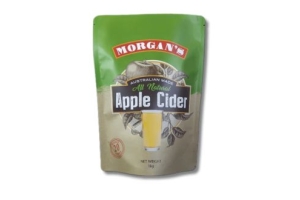
Beer brewing is an intricate process that involves multiple steps to transform basic ingredients into a delicious beverage. One critical aspect of brewing that often goes unnoticed by consumers but is essential for brewers is water treatment, specifically carbon treatment. This process ensures that the water used in brewing is free of impurities that can negatively affect the beer's flavor and quality. This article explores the importance, methods, and benefits of carbon treatment in beer brewing.
Importance of Water Quality in Brewing
Water is the most significant ingredient in beer, comprising up to 95% of its composition. The quality of water used in brewing can profoundly impact the final product's taste, aroma, and stability. Municipal water supplies often contain chlorine, chloramine, organic compounds, and other contaminants that can introduce off-flavors and affect yeast performance during fermentation.
Role of Carbon Treatment
Carbon treatment, specifically activated carbon filtration, is a common method used by brewers to purify water. Activated carbon is highly porous, providing a large surface area to adsorb impurities from the water. This process effectively removes chlorine, chloramine, organic compounds, and other unwanted substances that can detract from the beer's quality.
Removal of Chlorine and Chloramine: Chlorine and chloramine are commonly added to municipal water supplies to disinfect and kill harmful bacteria. However, these chemicals can react with organic compounds in the water to form chlorophenols, which impart a medicinal or plastic-like taste to the beer. Activated carbon effectively removes these disinfectants, preventing off-flavors.
Elimination of Organic Compounds: Organic compounds from natural sources or industrial pollutants can be present in water and contribute to undesirable flavors and aromas. Carbon treatment adsorbs these compounds, resulting in cleaner and more neutral water, which allows the malt and hops' flavors to shine through.
Methods of Carbon Treatment
There are several methods of incorporating carbon treatment into the brewing process:
- Granular Activated Carbon (GAC) Filters: These filters use loose granules of activated carbon to adsorb impurities from water as it passes through. GAC filters are effective for large volumes of water and are commonly used in commercial breweries.
- Carbon Block Filters: Made by compressing activated carbon into a solid block, these filters provide a high surface area for adsorption and are highly effective at removing chlorine and organic compounds. They are often used in smaller brewing setups or for final filtration stages.
- Carbon Cartridges: These are pre-filled cartridges of activated carbon that can be inserted into filter housings. They offer convenience and are easy to replace, making them suitable for both homebrewers and small-scale breweries.
Benefits of Carbon Treatment
The primary benefit of carbon treatment in brewing is the improvement of water quality, which directly translates to better beer quality. By removing impurities that cause off-flavors, brewers can produce cleaner, more consistent beers that highlight the intended flavors of the malt, hops, and yeast.
Additionally, carbon-treated water can enhance yeast health and performance. Chlorine and chloramine can be toxic to yeast, leading to sluggish fermentation or off-flavors produced by stressed yeast. By eliminating these contaminants, brewers ensure a healthier fermentation process, resulting in a cleaner and more stable final product.
Carbon treatment is a crucial step in the beer brewing process, ensuring that the water used is free from impurities that can negatively impact the beer's flavor and quality. Whether through granular activated carbon filters, carbon block filters, or carbon cartridges, The Brew Shop has several options for incorporating this treatment into your brewing setup. By investing in carbon treatment, brewers can produce high-quality beers with clean, pure flavors that delight beer enthusiasts.





